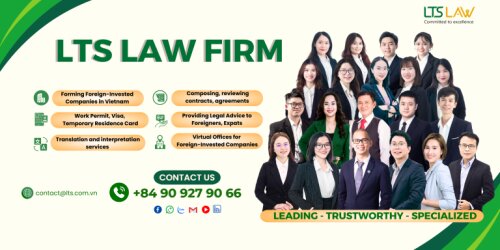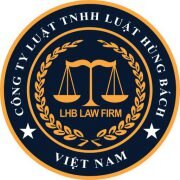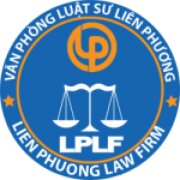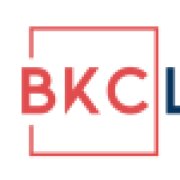Best Disability Lawyers in Ho Chi Minh City
Share your needs with us, get contacted by law firms.
Free. Takes 2 min.
List of the best lawyers in Ho Chi Minh City, Vietnam
About Disability Law in Ho Chi Minh City, Vietnam
In Ho Chi Minh City, Vietnam, disability law aims to protect the rights and promote the well-being of individuals with disabilities. The legal framework encompasses various policies comprising anti-discrimination measures, provisions for accessibility in public spaces, equal employment opportunities, and government-supported social assistance programs. These legal instruments are designed to ensure that individuals with disabilities are able to live with dignity, participate in the community, and access the services they need without facing undue barriers.
Why You May Need a Lawyer
There are several situations where you may require legal help in the field of disability. These include facing discrimination at work due to your disability, requiring assistance in understanding and securing your rights to government benefits and services, or needing help to tackle barriers in accessibility within public or private spaces. Moreover, legal counsel may be necessary if you need to address issues related to guardianship, estate planning or when a dispute arises that affects someone with a disability.
Local Laws Overview
Local disability laws in Ho Chi Minh City mirror Vietnam’s national legal provisions, which have seen progressive development over the years. Key pieces of legislation include the Law on Persons with Disabilities (2010), which lays out the rights of individuals with disabilities, and mandates the state, families, and society to support their full development. It also emphasizes eliminating discrimination and ensuring accessibility in infrastructure, education, and employment. In 2012, Vietnam ratified the United Nations Convention on the Rights of Persons with Disabilities, reaffirming its commitment to upholding international standards in disability rights.
Frequently Asked Questions
What qualifies as a disability under Ho Chi Minh City's laws?
Under Vietnamese law, a disability is defined as a restriction in a person's physical, intellectual, or sensory capabilities that affects their ability to perform certain activities or participate fully in society on an equal basis with others.
How is discrimination against disabled individuals addressed by local law?
Discrimination based on disability is prohibited, and individuals who feel they have faced discriminatory treatment have the right to seek remedial action through legal channels.
Does Ho Chi Minh City provide any financial assistance to individuals with disabilities?
Qualified individuals with disabilities may be eligible for financial assistance and other support services from the government to help with daily living and medical expenses.
Are employers in Ho Chi Minh City required to make reasonable accommodations for employees with disabilities?
Employers are required to provide reasonable accommodations to employees with disabilities to help them perform their jobs effectively and access job opportunities.
How accessible is public transportation for individuals with disabilities in Ho Chi Minh City?
Efforts have been made to improve the accessibility of public transportation, but challenges still exist. Newer infrastructure and services tend to be more disability-friendly.
Can individuals with disabilities access government buildings and other public spaces?
The law mandates that government buildings and public spaces should be accessible to individuals with disabilities. However, implementation varies and may not be comprehensive throughout the city.
What are the educational rights for children with disabilities in Ho Chi Minh City?
Children with disabilities have the right to access inclusive education and educational support services as provided by law.
Are there any tax benefits for people with disabilities or their caregivers?
There may be tax exemptions or deductions available to individuals with disabilities or their legal caregivers, as stipulated by Vietnam's tax laws.
How does one apply for disability benefits in Ho Chi Minh City?
To apply for disability benefits, individuals or their legal representatives must file a claim with the local social security office and provide the required medical documentation and personal identification details.
What legal recourse do individuals with disabilities have if they face barriers to access or other rights violations?
Individuals with disabilities can seek legal recourse by filing complaints with relevant government authorities, or by bringing their case to civil court with the assistance of a lawyer.
Additional Resources
For those seeking legal advice on disability-related matters, it is advisable to contact the Ho Chi Minh City Department of Labor, War Invalids and Social Affairs, which handles disability issues. In addition, organizations such as the Disability Research and Capacity Development (DRD) center may offer guidance and support. Finally, seeking out disability rights advocacy groups and legal aid organizations within the city can provide further information and assistance.
Next Steps
If you need legal assistance in the area of disability, the recommended first step is to schedule a consultation with a lawyer who specializes in disability law. This professional can offer precise advice tailored to your specific situation and help navigate the legal procedures necessary for safeguarding your rights or those of a loved one. Additionally, documenting any incidents of discrimination or barriers faced will be valuable when presenting your case. It’s important to act promptly and informedly when legal concerns arise.
Lawzana helps you find the best lawyers and law firms in Ho Chi Minh City through a curated and pre-screened list of qualified legal professionals. Our platform offers rankings and detailed profiles of attorneys and law firms, allowing you to compare based on practice areas, including Disability, experience, and client feedback.
Each profile includes a description of the firm's areas of practice, client reviews, team members and partners, year of establishment, spoken languages, office locations, contact information, social media presence, and any published articles or resources. Most firms on our platform speak English and are experienced in both local and international legal matters.
Get a quote from top-rated law firms in Ho Chi Minh City, Vietnam — quickly, securely, and without unnecessary hassle.
Disclaimer:
The information provided on this page is for general informational purposes only and does not constitute legal advice. While we strive to ensure the accuracy and relevance of the content, legal information may change over time, and interpretations of the law can vary. You should always consult with a qualified legal professional for advice specific to your situation.
We disclaim all liability for actions taken or not taken based on the content of this page. If you believe any information is incorrect or outdated, please contact us, and we will review and update it where appropriate.















